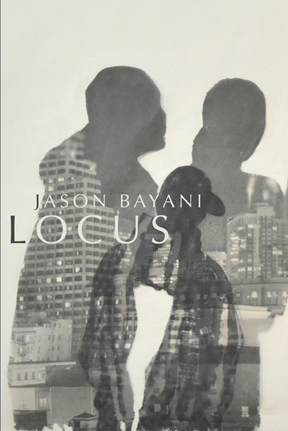Description
Poems that play like a mixtape with cuts, loops, scratches and long, meditative breaks
Jason Bayani’s second book of poems, Locus, centers the post-1965 Immigration Act Pilipinx in America. Weaving his way through the muddled recordings of history and personal memory, Bayani looks to tell a story of migrant bodies, the impermanence of home, and how one learns to find themself in the transient states of the experienced and mythologized America.
In the profundity of Locus, Jason Bayani weaves the personal and the historical into a perfect storm of words, breath, poetry, consciousness and a literature of this time. “Always I am told I am nothing / and from nothing I make myself”—these words like so many others in the book resonate to do the work of bridging the divide of culture and race. It is a necessary read for those of us who carry the burden of calling ourselves citizens in the here and now. I celebrate this gift of a book and I celebrate the poet’s insistence on belonging.
Truong Tran, author of dust and conscience
Bayani pulls you in with abstract recollections and reflections on moments in his life, and by the last page, things just ‘connect’. Bayani’s poems move around this theme of his experience with music, DJ culture, and will have you listening to him, looking for the meaning and connections… even without all the context and knowledge of the history of Filipinx Americans, the reader can be affected and moved by what they read… Being open and vague, but vulnerable and honest, Bayani talks about things from a first-hand experience… “Locus” is worth listening to — and hearing.
Antonia Dorn, International Examiner
Reviews
About the Author
Excerpt
Jason Bayani is the author of Amulet (2013, Write Bloody Publishing). He’s an MFA graduate from Saint Mary’s College, a Kundiman fellow, and works as the Artistic Director for Kearny Street Workshop in San Francisco. Bayani performs regularly around the country, and debuted his solo theater show, Locus of Control, in 2016.
Kamayan
My dad used to clean my chicken wings,
said I left too much meat on,
swiped off every last bit of flesh,
and threw it back on the plate
til the rattling sound wrung itself out
all over my American bones.
We used to joke about walking into Filipino homes
and there’d always be a big wooden spoon and fork
hanging on the wall. It is said
this is a sign of prosperity. How you tell people
that your home is blessed, and the people here live well.
My grandmother never stopped eating with her hands.
\She’d sweep the rice into the crown of her fingers
and hold it upright for just a second of prayer
before driving it through her lips. It was the Spanish
who gave us utensils. Because only a colonizer
believes propriety is the same as liberation,
that they can walk into your house
and claim everything for themselves
because they remembered to take off their shoes.
Sometimes I catch my dad scooping the food
off the plate with his hands. Some momentary lapse
or glitch in the programming.
No shame to precede it, only a linger
over the last bits of rice clinging to his fingers,
the sauce hanging right off the tips





